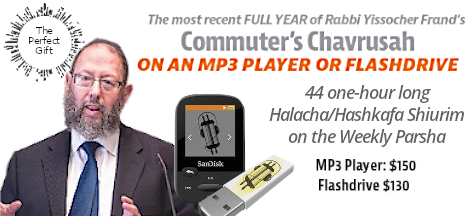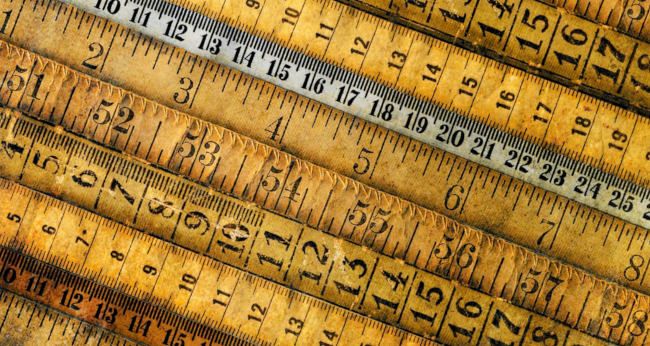

Good Shabbos
Parshas Ki Seitzei contains the very hard to understandparshaof the Ben Sorer U’Moreh (the wayward and rebellious son). We know the basic halachos: For approximately three months from the time of his thirteenth birthday, a young man steals food and wine from his father. Without going into all the technicalities of the parsha, such a boy is executed byBeis Dinto preempt the possibility of him growing up to engage in much worse criminal activities. In the words of Rashi here: The Ben Sorer U’Moreh is judged based on “his ending” (i.e., what would be his ending if he were allowed to live). We prefer to “put him to death while innocent, rather than wait and put him to death when he is already guilty.”
Note that the Gemara in Sanhedrin (71a) says that these are theoretical halachos which teach a homiletic lesson (lamah nichteva? Drosh v’kabel schar.), but which never actually happened throughout Jewish history.
Rav Eliyahu Mizrachi, in Parshas Vaera, asks a very famous question on this idea cited by Rashi, that a Ben Sorer U’Moreh is judged now based on his future deeds: In Parshas Vaera, themalach(angel) told Hagar thatHashemheard the cry of her son, Yishmael (who was dying of thirst), “b’asher hu sham” (as he was there). (Bereshis 21:17) The Medrash relates that the malachei hasharays (ministering angels) questioned, as it were, the Judgment of the Almighty: “Master of the Universe – what are You doing? This Yishmael will have descendants who will cause Your children to die by thirst; why are You providing a well for him?” Our current suffering from Yishmael’s descendants only strengthens their question!
The Almighty responded to the malachim: Currently, what is he – righteous or wicked? The malachim had to respond that at that point he was righteous, to which the Almighty responded that He only judges man based on his actions at a particular point in time, not based on Hashem’s foreknowledge of future actions. This is the connotation of the expression “b’asher hu sham” (i.e. — as he was there, at that time).
Rav Eliyahu Mizrachi points out the contradiction: By Ben Sorer U’Moreh, the young man is judged based on what will become of him eventually. However, Yishmael was given a pass since at the time of judgement he was still not guilty of his future crimes.
There are many answers given to this question. One answer is that Yishmael – the individual – never made Jews die of thirst. Only his descendants sank to that level. However, the Ben Sorer U’Moreh himself will become a danger to society.
I saw another answer in asefercalled Bei Chiya, which was written by a Rav in the Five Towns (Rav Elisha Horowitz). He suggests an answer based on a Gemara in Rosh HaShanah (18a), “Rabbi Meir used to say you can have two people who fall ill with the same illness or two people who are accused of identical crimes, who are both on the gallows – yet one will descend (i.e., get better) and one will not descend (i.e., will die from his illness). Likewise, one person will be hung, and the other person will not be hung. Why? It is because this one prayed and his prayers were answered, and the other one prayed and his prayers were not answered. This one prayed a tefilah sheleimah (a complete, sincere prayer) and the other one did not pray a tefilah sheleimah.”
Even though both had the same illness and faced the same verdict, one of them was saved by virtue of his tefilah sheleimah and the other one, who did not pray a tefilah sheleimah, went to his death.
The Bei Chiya asks: How does the Gemara know that this was the crucial factor that explained the distinction between the fate of these two individuals? Why doesn’t the Gemara attribute it to other zechusim (merits) that one had vis-a-vis the other? Why attribute it to prayer rather than to charity or to other positive attributes which might also explain the difference?
This Gemara teaches us an idea that is essential for us to know, especially at this time of year. Prayer is all-powerful. Sometimes zechusim cannot save a person and other things cannot save a person, but the Almighty placed in His world, within the metaphysical laws of spirituality, the fact that tefilah helps rescue man from crises. Statistically, these two individuals should have met the same fate. However, the power of prayer of one of them tipped the scales for him, and that saved the day.
The Bei Chiya suggests that this is the difference between Yishmael and the Ben Sorer U’Moreh. Theoretically, Yishmael, too, should have been judged “al shem sofo” (based on the future actions of his offspring) just like the Ben Sorer U’Moreh. But Yishmael cried out to Hashem! He davened. This, in fact, is emblematic of the power of the nation of Yishmael, going all the way back to their founding ancestor.
When the aspect of koach hatefillah comes into the equation of two individuals facing identical statistical possibilities, all bets are off. Theoretically, a person could be judged “al shem sofo,” as we see by the Ben Sorer U’Moreh. However, if concurrently, while a person is being judged, he reaches out to his Father in Heaven with the pure cry of a child reaching out to his father, the tefillah can overpower any other factor.
This should be a lesson to us during these holy days. Elul is a preparation for the Yomim Noraim (High Holidays). When people ask me, “What should a person be concentrating on during these days?” I answer that a person should try to learn how todavenbetter. That is what the Yomim Noraim are about: “Seek out Hashem when He is to be found, call out to him when He is near.” (Yeshaya 55:6). It is all aboutdavening.
Pardon the mundane analogy, but there is such a thing in baseball known as “spring training.” A fellow has to get his timing right in order to hit. There are six weeks of spring training because that is what it takes to get into shape. L’havdil elef alfei havdolos, that is the way it is with Elul. It is the time that we need to prepare for the Yomim Noraim. How do we do this? We do with the power of tefilah. We do it by trying todavena little bit better and a little bit slower. We read sefarim aboutdavening. At the end of the day, the difference in fate between one man and the next may very well be that “this one prayed a tefilah sheleimah and this one did not pray a tefilah sheleimah.”
One Set of Measures for Yourself and Another Set for Everyone Else
The Torah says “You shall not have in your house a measure and a measure – a large one and a small one. A perfect and honest weight shall you have…” (Devarim 25:14-15). It is prohibited to possess dishonest weights and measures. A person must have the same set of measuring utensils for himself and for his customers; the same set for his “good customers” and for his “bad customers”. No cheating is permitted!
Rabbi Dr. Abraham Twerski, ob”m, quotes a very meaningful insight from Rav Menachem Mendel of Kotzk. The Kotzker says that when the Torah insists that a person may only possess one set of measures, the Torah is not only talking about commercial scales and tape measures. A person needs to have one set of standards. It is forbidden to have one set of standards for yourself and another set of standards for someone else.
Rabbi Twerski writes: Take the very common statement: I am a very strong person when it comes to my convictions. A person is proud of that when he says it about himself. However, the same convictions, when found in someone else, may elicit the evaluation, “This person is obstinate and obstructive.” When I am doing it, it is because I am a person of principle. When the other person does it, he is stubborn!
Similarly, when someone says about himself, “I can be flexible and tolerant”, he thinks that this is an admirable character trait. And yet when he sees the same behavior in someone else, he comments: This person is spineless and drifts with the wind. So too: “I am frugal” but “He is a miser.”
This is what it means to have two sets of standards. What I do is always right, and I admire that in myself. Yet the very same type of practice in a different person elicits the harshest of evaluations: Despicable!
It is very easy to fall into this trap. I can look at someone and instantly react, “That is not the proper way to behave”. But then I catch myself and ask, “But how do I act?” This is what the pasuk is saying: You should not have in your house two sets of measures – one for yourself and one for somebody else. A person needs to be consistent – one set of measures for both yourself and for everyone else.
Transcribed by David Twersky; Jerusalem DavidATwersky@gmail.com
Edited by Dovid Hoffman; Baltimore, MD dhoffman@torah.org
This week’s write-up is adapted from the hashkafa portion of Rabbi Yissochar Frand’s Commuter Chavrusah Series on the weekly Torah portion. A listing of the halachic portions for Parshas Ki Seitzei is provided below:
- #020 – Non-Halachic Marriage Ceremonies
- #065 – Polygamy and the Cherem of Rabbeinu Gershom
- #110 – Mamzeirus: Possible Solutions?
- #156 – Reconciling Divergent Customs Between Husband and Wife
- #203 – The Pre-War “Get”
- #250 – The Mitzvah of Ma’akeh
- #293 – “Get Me’useh”: The Prohibition of the “Forced Get”
- #339 – Shana Reshona: The First Year of Marriage
- #383 – The Mitzvah of Burial
- #427 – Trying on Suits that May Have Shatnes
- #471 – Autopsies on Non-Jews
- #515 – Women Wearing Men’s Clothing
- #559 – The Double Portion of the Be’chor
- #603 – Burying a Rasha Next to a Tzadik
- #647 – Ramps and Stages – Do They Need a Maakeh?
- #691 – Chassanah Minhagim
- #735 – Brachos in a Bathroom?
- #779 – Shehecheyanu at a Chasuna
- #823 – Tzar Ba’al Hachayim – Does It Apply to People?
- #867 – Dying Hair For Men – Asur or Mutar?
- #911 – Returning a Lost Pacifier
- #955 – The Un-Cancelled Stamp – Can You Re-use it?
- #998 – Making a Bracha for Building a Ma’akeh?
- #1042 – Dressing Up As A Woman for Chasunah Dancing and on Purim?
- #1086 – A Bracha for Shiluach Hakein?
- #1129 – The Ani Who Picked Up Your $20 bill
- #1171 – Dating Someone Before You Are Divorced?
- #1259 – Shiluach Hakain – On Shabbos? From Your Back Porch?
- #1303 – Is A Woman Allowed to Carry a Gun?
- #1347 – The Case of the Frail Grandfather and the Bracha Under the Chupa
- #1391 – Shalom Aleichem – Before or After Kiddush?
- #1435 – Paying a Worker on Time- A Mitzva De’oraisah
- #1479 – The Famous/Infamous Case of the Get of Cleeves
- #1523 – The Lesser of Two Evils? Autopsy Versus Cremation
- #1565 – Shana Rishono – First Year of Marriage: What You Must or Must Not Do
A complete catalogue can be ordered from the Yad Yechiel Institute, PO Box 511, Owings Mills MD 21117-0511. Call (410) 358-0416 or e-mail tapes@yadyechiel.org or visit http://www.yadyechiel.org/ for further information.



